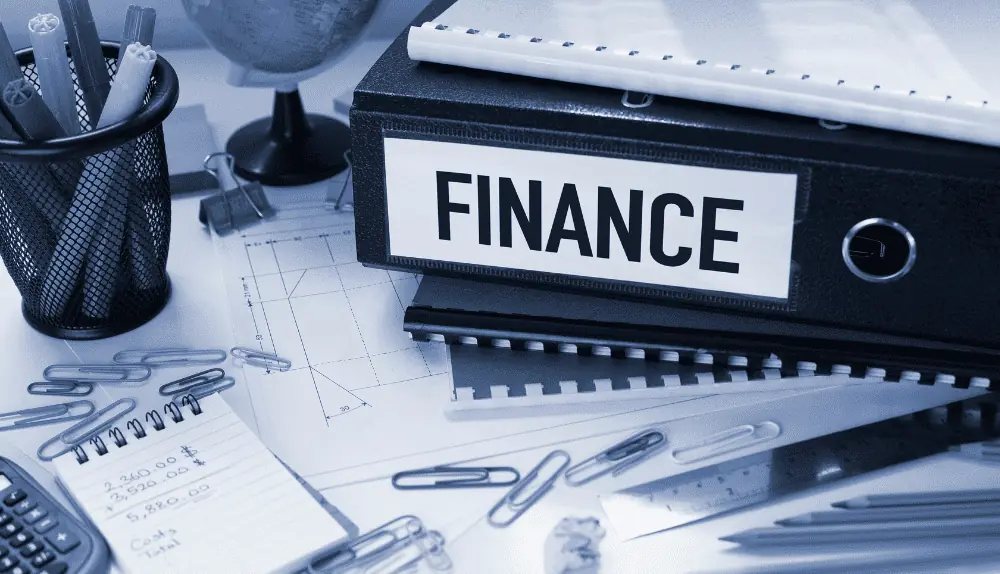In today’s fast-paced and interconnected world, it’s becoming increasingly important for individuals to effectively separate their personal and business finances. Whether you’re a small business owner, a freelancer, or even a side hustler, maintaining clear boundaries between your personal and professional financial matters is crucial for both your peace of mind and your financial success.
With that in mind, we’ve compiled a comprehensive list of the 10 best ways to separate your personal and business finances, empowering you to take control of your financial affairs, make informed decisions, and pave the way for a prosperous future. So, buckle up and get ready to unlock the secrets of financial independence and productivity as we dive into these invaluable strategies that will set you on the path to financial success!
Why is it Important to Separate Personal and Business Finances?

Separating personal and business finances is a critical practice that can have a significant impact on your financial well-being and the success of your business. Firstly, keeping your personal and business finances separate provides a clear and accurate picture of your business’s financial health. It allows you to track income, expenses, and profits more efficiently, making it easier to monitor cash flow, identify trends, and make informed financial decisions.
Moreover, separating finances promotes transparency and compliance. When personal and business finances are intertwined, it becomes challenging to differentiate between personal and business expenses, which can lead to confusion during tax time and potential legal issues. By maintaining separate accounts and records, you ensure accurate financial reporting, facilitate tax preparation, and stay on the right side of legal obligations.
Additionally, separating finances enhances personal financial security. It shields your personal assets from potential business liabilities, such as lawsuits or debt, reducing the risk of losing personal savings, properties, or investments. It also helps establish a financial boundary, fostering a healthier work-life balance and preventing personal financial goals from being compromised by business expenses.
In summary, separating personal and business finances is essential for maintaining financial clarity, compliance, and security. By doing so, you position yourself and your business for long-term success and stability.
Best Ways to Separate Your Personal and Business Finances

Managing personal and business finances separately is crucial for financial success and peace of mind. Keeping clear boundaries between personal and professional finances allows for better financial tracking, compliance with tax regulations, and protection of personal assets. In this section, we will explore the 10 best ways to effectively separate personal and business finances, ensuring financial independence and paving the way for a prosperous future.
1. Establish Separate Bank Accounts
The first and most fundamental step in separating personal and business finances is to establish separate bank accounts. Open a dedicated business account that is solely used for business transactions. This will help maintain clarity and simplify record-keeping. Avoid mixing personal and business expenses by strictly using personal accounts for personal purchases and business accounts for business-related transactions.
2. Maintain Separate Credit Cards
Similar to bank accounts, having separate credit cards for personal and business use is essential. It provides a clear distinction between personal and business expenses, making it easier to track and manage finances. A business credit card can also offer benefits like rewards programs tailored to business needs. Be disciplined in using the appropriate card for each type of expense and ensure regular payment to maintain a good credit score.
3. Implement a Bookkeeping System
Adopting a reliable bookkeeping system is crucial for keeping personal and business finances separate. Utilize accounting software or hire a professional bookkeeper to manage and categorize transactions accurately. This system will provide a comprehensive overview of income, expenses, and profits, allowing for better financial analysis and informed decision-making.
4. Set Up a Payroll System
If you have employees or contractors, it is essential to establish a payroll system to ensure proper separation of personal and business finances. Pay salaries or wages directly from the business account, maintaining a clear record of compensation for tax purposes. This prevents personal funds from getting mixed up with business expenses and ensures compliance with labor regulations.
5. Maintain Proper Documentation
Maintaining thorough documentation is crucial for separating personal and business finances. Keep detailed records of all financial transactions, including receipts, invoices, and statements. Clearly label and file them appropriately, distinguishing between personal and business documents. This documentation will prove invaluable during tax time, audits, or any financial review.
6. Create a Budget and Stick to It
Developing separate budgets for personal and business finances is essential. A personal budget helps manage personal expenses, savings, and investments, while a business budget helps control business-related costs, such as inventory, marketing, and overhead. Adhere to the allocated budgets strictly to prevent overspending and maintain a healthy financial balance.
7. Pay Yourself a Salary
If you are a business owner or a freelancer, paying yourself a salary is a practical way to separate personal and business finances. Determine a reasonable salary for your work and consistently pay yourself from the business account. This practice ensures that personal expenses are covered by the salary rather than dipping into business profits. It also simplifies personal financial planning.
8. Use Separate Accounting Software
Utilizing separate accounting software for personal and business finances is highly recommended. Personal finance software can help track personal expenses, manage savings goals, and monitor investments. On the other hand, business accounting software provides features tailored to business needs, such as invoicing, expense tracking, and tax reporting. By using dedicated software, you can maintain a clear distinction between personal and business financial activities.
9. Educate Yourself and Seek Professional Advice
To effectively separate personal and business finances, it is important to educate yourself about best practices and seek professional advice when needed. Stay updated on tax regulations, business deductions, and financial management strategies. Consider consulting with an accountant or financial advisor who specializes in small businesses to ensure you are making informed decisions and optimizing your financial situation.
10. Regularly Review and Reconcile Finances
Lastly, make it a habit to review and reconcile both personal and business finances regularly. Set aside time each month to analyze income, expenses, and budgets. Reconcile bank statements, credit card statements, and accounting records to identify any discrepancies or potential errors. By staying proactive and diligent in financial monitoring, you can promptly address any issues and maintain the separation of personal and business finances effectively.
Separating personal and business finances is crucial for financial success and stability. By following these ten best practices, including establishing separate bank accounts, maintaining proper documentation, and implementing a payroll system, you can effectively keep personal and business finances separate. Remember to create budgets, pay yourself a salary, and utilize dedicated accounting software. Educate yourself on financial management and seek professional advice when needed.
Regularly reviewing and reconciling finances will help maintain clarity and control. By implementing these strategies, you will ensure a solid foundation for financial independence and pave the way for long-term success in both your personal and business endeavors.
Steps to Separate Your Personal and Business Finances

Separating personal and business expenses is essential for maintaining financial clarity and complying with legal and tax regulations. Here are the steps you can follow to separate personal and business expenses effectively:
Establish Separate Bank Accounts
Open a dedicated business bank account separate from your personal account. Use the business account solely for business-related transactions.
Obtain a Business Credit Card
Apply for a business credit card to use exclusively for business expenses. This helps create a clear distinction between personal and business transactions.
Track and Categorize Expenses
Keep meticulous records of all your expenses, categorizing them as either personal or business. Use accounting software or a spreadsheet to maintain an organized record.
Use Separate Payment Methods
Make sure to use the appropriate payment method for each type of expense. For personal expenses, use your personal credit card or cash. For business expenses, use the business credit card or write a check from the business account.
Keep Receipts
Retain receipts for all business expenses to support your financial records. This is crucial for accurate bookkeeping and tax deductions.
Pay Yourself a Salary
If you’re a business owner, establish a formal salary for yourself. Transfer funds from the business account to your personal account to cover personal expenses, just as you would for any employee.
Avoid Commingling Funds
Never mix personal and business funds. Be strict about maintaining the separation between the two and refrain from using personal funds to cover business expenses or vice versa.
Implement an Expense Reimbursement Process
If you need to make personal purchases for your business, document them properly and reimburse yourself from the business account. This ensures a clear separation of personal and business expenses.
Consult with an Accountant
Seek advice from an accountant or tax professional who specializes in small businesses. They can provide guidance on properly separating expenses, maximizing deductions, and staying compliant with tax regulations.
Regularly Review and Reconcile
Set aside time each month to review your financial records, bank statements, and credit card statements. Reconcile them to ensure all transactions are accurately categorized and accounted for.
By following these steps, you can effectively separate personal and business expenses, maintain financial clarity, and ensure compliance with legal and tax obligations. It’s a prudent practice that will benefit both your personal financial stability and the success of your business.
When to Separate Personal and Business Finances?
It is advisable to separate personal and business expenses as soon as you start engaging in any business or entrepreneurial activities. Here are some key milestones and situations that indicate when you should separate personal and business expenses:
Business Formation
Once you officially establish a business entity, such as a sole proprietorship, partnership, or corporation, it is essential to begin separating personal and business expenses. This ensures clear financial records and legal compliance from the start.
Commencing Business Activities
As soon as you start conducting business transactions, whether it’s making sales, purchasing inventory, or incurring expenses related to your business, it is important to separate these expenses from your personal finances. This practice facilitates accurate bookkeeping and financial tracking.
Opening Business Bank Account
When you decide to pursue a business venture, open a dedicated business bank account. This allows you to keep personal and business funds separate, simplifying financial management and ensuring proper documentation.
Hiring Employees or Contractors
If you hire employees or engage independent contractors to work for your business, it becomes even more critical to separate personal and business expenses. This enables proper payroll management and ensures compliance with labor laws and tax regulations.
Tax Filing
Separating personal and business expenses is essential when filing your taxes. Maintaining clear records of business-related transactions and separating them from personal expenses simplifies the tax filing process and enables accurate reporting of income and deductions.
Seeking Financing or Investors
If you plan to secure financing or attract investors for your business, having a clear separation between personal and business expenses is crucial. It demonstrates your professionalism, financial stability and makes it easier to present accurate financial statements to potential lenders or investors.
Growing Business Operations
As your business expands and the number of transactions increases, it becomes even more important to separate personal and business expenses. This ensures accurate financial reporting, helps identify business growth opportunities, and protects your personal assets from potential business liabilities.
Remember, separating personal and business expenses is a best practice regardless of the size or scale of your business. It promotes financial transparency, simplifies bookkeeping, and provides legal and tax compliance. It’s always better to establish the separation early on to avoid confusion and potential issues in the future.
Does Every Business Need to Separate Personal and Business Finance?
Yes, every business, regardless of its size or legal structure, should separate personal and business finances. While the extent of separation may vary depending on the business’s scale and complexity, maintaining a clear distinction between personal and business finances is crucial for several reasons:
Legal and Regulatory Compliance
Separating personal and business finances ensures compliance with legal and regulatory requirements. Mixing personal and business funds can lead to legal issues, such as piercing the corporate veil, where personal assets become vulnerable to business liabilities.
Financial Transparency and Accuracy
Keeping personal and business finances separate allows for transparent financial reporting and accurate bookkeeping. It provides a clear overview of the business’s financial health, simplifies tax preparation, and helps identify opportunities for growth and cost management.
Tax Reporting and Deductions
Separating personal and business expenses is essential for accurate tax reporting. It enables the proper identification and classification of deductible business expenses, maximizing tax deductions while reducing the risk of triggering an audit from tax authorities.
Financial Analysis and Decision-Making
Clear separation of personal and business finances facilitates better financial analysis and decision-making. It allows business owners to assess profitability, cash flow and make informed financial decisions based on accurate financial data.
Funding and Investor Relations
When seeking funding or engaging with potential investors, having separated personal and business finances instills confidence and demonstrates professionalism. It provides a clear understanding of the business’s financial position, making it easier to present accurate financial statements and attract investment.
Employee Compensation and Benefits
Separating personal and business finances is essential for proper employee compensation and benefits management. Having a clear payroll system ensures employees are paid accurately from the business account, simplifies tax withholding, and ensures compliance with labor laws.
While the level of separation may vary based on the business’s structure (such as sole proprietorship, partnership, or corporation), it is crucial to maintain a clear distinction between personal and business finances to protect personal assets, ensure compliance, and foster financial stability and growth.
Even small businesses or self-employed individuals should make an effort to separate personal and business finances, as it establishes good financial habits, simplifies record-keeping, and sets the stage for long-term success. It is never too early to start separating personal and business finances, regardless of the business’s size or industry.
Final Words
In conclusion, separating personal and business finances is a fundamental practice that every business, regardless of size or structure, should prioritize. By establishing clear boundaries and maintaining separate bank accounts, credit cards, and financial records, business owners can ensure financial transparency, compliance with legal and tax obligations, and accurate financial reporting.
This separation facilitates informed decision-making, supports growth and profitability, and protects personal assets from business liabilities. Regardless of the stage of your business, whether you’re just starting out or have an established operation, it’s never too late to implement these practices and reap the benefits of separating personal and business finances. By doing so, you lay the groundwork for financial stability, enable better financial management, and set yourself up for long-term success in both your personal and business endeavors.
Frequently Asked Questions (FAQs)
Do I need a separate bank account for my business?
Yes, it is recommended to have a separate bank account for your business. This ensures clear separation of personal and business funds, simplifies record-keeping and promotes financial transparency.
Can I use the same credit card for personal and business expenses?
It is best to have separate credit cards for personal and business expenses. This allows for easy tracking, accurate categorization and simplifies tax deductions.
How can I track and categorize personal and business expenses effectively?
Utilizing accounting software or a spreadsheet can help track and categorize personal and business expenses accurately. It is crucial to maintain detailed records and properly label each transaction.
What are the risks of not separating personal and business finances?
Failure to separate personal and business finances can result in legal and tax complications, difficulties in financial reporting, inaccurate deductions, and potentially jeopardizing personal assets in case of business liabilities.
Should I consult with an accountant or financial advisor?
Consulting with an accountant or financial advisor who specializes in small businesses can provide valuable guidance on separating personal and business finances, maximizing deductions, and ensuring compliance with regulations.
Is it necessary to separate personal and business finances for a sole proprietorship?
While legally not required, separating personal and business finances for a sole proprietorship is highly recommended. It simplifies bookkeeping, supports accurate tax reporting, and protects personal assets.

